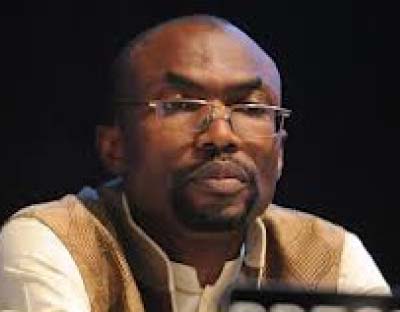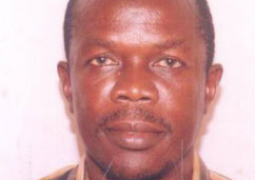
The four-year project dubbed “Action Against Desertification Project” under the Great Green Wall for the Sahara and Sahel Initiative (GGWSSI) in The Gambia is an AU project, funded by the EU, executed by the FAO and implemented by the Department of Forestry.
The Gambia like many other Sahelian countries in the sub-region is confronted with the familiar set of problems associated with agriculture, biodiversity loss, land degradation and out-ward youth migration.
According to the minister, deforestation and land degradation are a major environmental problem that threatens agricultural productivity, thus directly affecting the livelihood of thousands of rural populations, particularly in the northern part of the country.
He said there is a need to take urgent action to combat desertification that already is manifested in this part of the country (North Bank Region).
He said: “By taking direct concrete steps that are aimed at promoting and strengthening sustainablemanagement of land and other natural resources, we will together save what would have become potentially serious negative consequences for generations to come.”
The Environment Minister further said that inaction today could lead to the reduction in future economic, social and environmental benefits that are associated with sustainable management of land and natural resources.
Minister Jarju further stated that through sustainable land management efforts, we can improve the productivity of our agricultural land and thereby enhance food security of local communities and the attainment of Vision 2020.
In this light, he continued, the government in 2015 transferred ownership and management responsibility of community forests back to local communities, to increase their access and guaranty tenure security and socio-economic benefits to these local communities.
“The community forestry management programme introduced in the 1990s has been exemplary in the whole of Africa and, as we speak today, more than 400 communities are participating in this programme, and are managing more than 31,000 hectares of forests as community forests.”
This project aims at addressing the problems of land degradation/deforestation, improve food security and ameliorate the impacts of climate change in the northern part of the country by promoting and piloting sustainable land management approaches.
Therefore, he added, the project is timely in that Desertification, Land Degradation and Drought (DLDD) “are now more than ever before important global agenda items” under the United Nations Convention to Combat Desertification (UNCCD) to which The Gambia is a signatory.
He noted that the selection of the northern parts of the country as target for this project is based on the fact that these areas are most affected by deforestation and land degradation.
Furthermore, he continued, projects in the forestry sector have in the past predominantly focused on the southern part of the country.
“It may interest you to know that the strategies for implementation of this project are focused on building the baselines, addressing capacity gaps at institutional and community levels for effective management of forests.”
Hence, this project is expected to consolidate gains made in areas under community forestry, particularly in addressing illegal and unsustainable resource use while promoting protection and restoration of natural ecosystems.
He implored all institutions and persons involved in the implementation of the project to seriously commit to building capacity of communities to preserve vulnerable productive systems on which “so many vulnerable people’s lives depend”.
He said building long-term resilience strategies to safeguard lives, livelihood and ensure food security would be critical.
He thanked the AU and the FAO for being instrumental and supportive “right from the formulation of the project”, and for the technical support and guidance.




